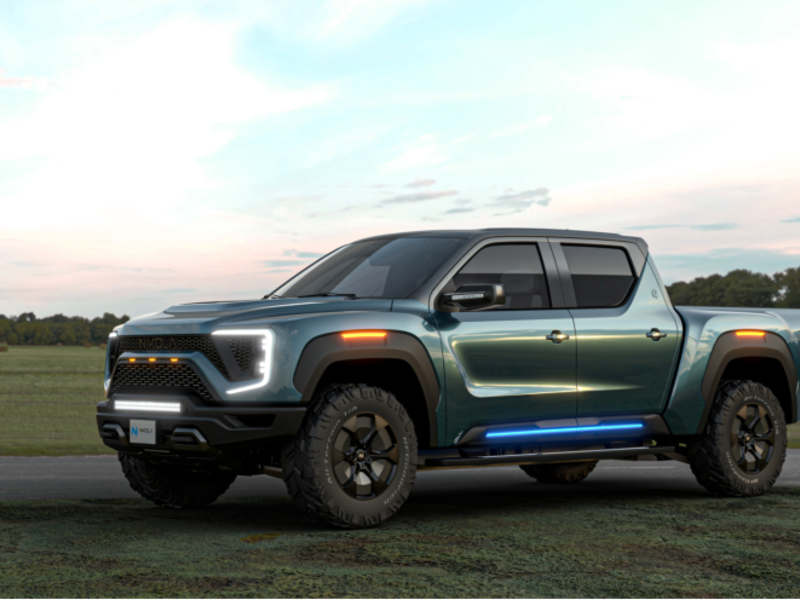
The first earnings report for electric-truck maker Nikola was a bumpy one, with executives and analysts trading barbs and investors sending the company’s shares plunging.
The stock fell 18 percent in late trading on Tuesday after Nikola, which is developing big rigs that run on batteries and fuel cells, said it lost $86.64 million in the second quarter, compared with $17.2 million in the same period last year.
Within minutes of Nikola releasing its statement, its founder Trevor Milton posted on Twitter that the Phoenix, Ariz.-based company had provided analysts with figures on its share count. He wrote that taking those figures into account, Nikola beat expectations, contrary to some who said it fell short.
“We actually beat our earnings by 20 percent,” he wrote. “They had the share count wrong. I have zero control as we can’t give out info prior to earnings.”
Analysts responded by pressing CEO Mark Russell on Nikola’s earnings call for more information on new customers, production timing and any confirmation of a partnership with a manufacturer that will build the company’s electric pickup model, called the Badger.
“So, Mark, I just wonder, is this all we get?” Paul Coster, an analyst at JPMorgan who rates Nikola the equivalent of a buy, asked Russell. Jeff Osborne of Cowen said trying to follow timelines Milton has been communicating on social media has been “a bit confusing.”
Nikola hopes to begin testing the battery-electric version of its first semi truck, the Tre, with select customers in 2021. The company has a joint venture with CNH Industrial NV’s Iveco truck unit to start limited production of the vehicle in Ulm, Germany, at the end of next year.
Trucks powered by hydrogen fuel cells will be built in Coolidge, Ariz., starting in 2023, where the company broke ground on its first U.S. manufacturing plant last week.
Russell declined during the call to name any new customers beyond Anheuser-Busch InBev, which has previously announced it was ordering 800 fuel-cell semis. In a phone interview, Russell said the company has potential buyers around the world.
“We had a fleet week in Europe where we bring the customers in, and we have had representatives of a good chunk of the market in our headquarters,” Russell said. “A good chunk of the target customers have been to see us. We’ve been in conversation with them for some time.”
Nikola listed its shares in early June following a reverse merger with a special purpose acquisition company, and quickly saw its market capitalization surge to almost $29 billion, at one point surpassing Ford Motor’s valuation. Electric-truck startups Lordstown Motors Corp. and Fisker Inc. are now trying to follow suit.
After Nikola ended the quarter with $707.3 million in cash and equivalents, Milton said in an interview that the company’s focus will be on financial prudence as it brings products to market. The company expects to raise an additional $264.5 million by redeeming stock warrants.
“We run a really tight ship here and we do spend money, but only when it’s needed,” Milton said. “That’s why we’re going to succeed and others have failed. They spent money like it’s just handed out.”